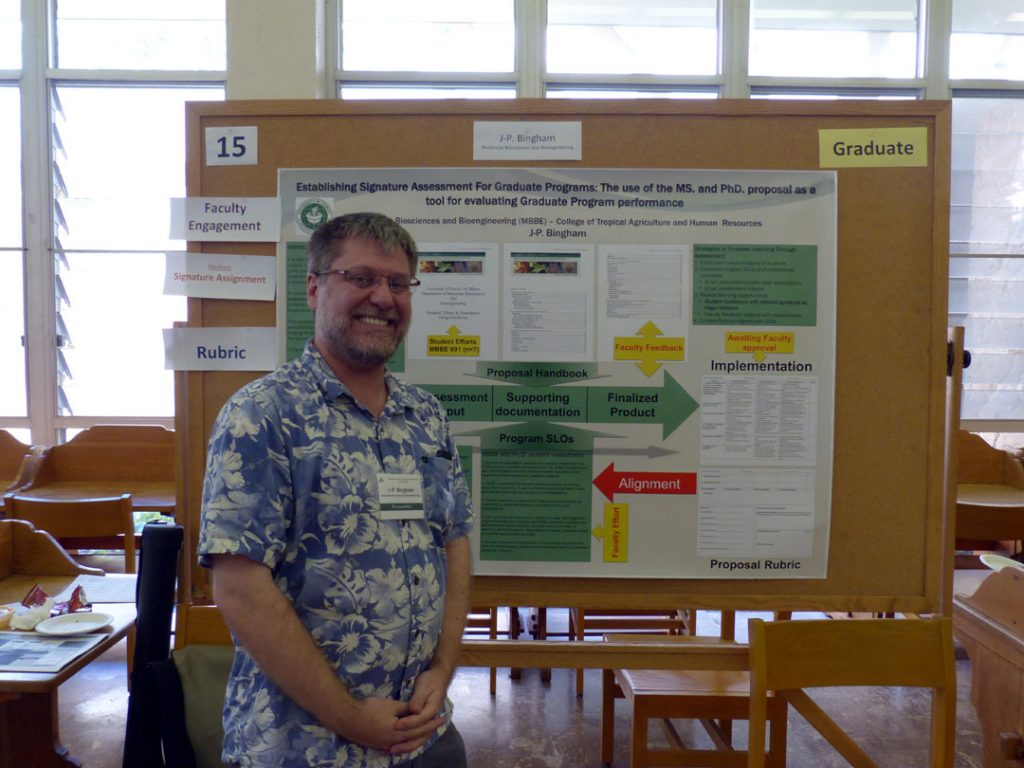
It is often hard to gauge the performance of a graduate student in a timely manner, or provide the necessary evaluation for graduate program review. Too commonly in graduate programs we employ ‘end-point’ analysis – i.e. graduate student enrollments vs. graduation rates. But what does this measure specifically indicate about the earlier periods of graduate student engagement/performance? To address this we focus on the use of a ‘signature assessment’ to provide early evaluation of MS. and PhD. students, using the exist mechanism of the Thesis/Dissertation Proposal (Form II). This milestone is typically the first stage of critical evaluation by the committee and plays a pivotal role in helping the graduate student form concepts and ideas. But in the process do these same measures meet departmental expectations, or that of professional standards? And does the graduate student receive detailed feedback to how they preformed in meeting these expectations? Here we detail the steps undertaken by the Molecular Biosciences and Bioengineering (MBBE) Graduate Program to address graduate student evaluation at the MS./PhD. Proposal level, in an effort to provide detailed feedback to the graduate student, and use this same criteria to supplement graduate program review. This is achieved by the provision of department expectations in a measurable proposal rubric, and the implementation of the MBBE Thesis/Dissertation Proposal Guidebook – to empower both the student and committee to meet both departmental and professional expectations and performance measurements. by J.P. Bingham
Recommended Citation:
Bingham, J.P.. (2016, April). Establishing Signature Assessment For Graduate Programs: The use of the MS. and PhD. proposal as a tool for evaluating Graduate Program performance. Poster session presented at the Assessment for Curricular Improvement Poster Exhibit at the University of Hawai’i at Mānoa, Honolulu, HI.
